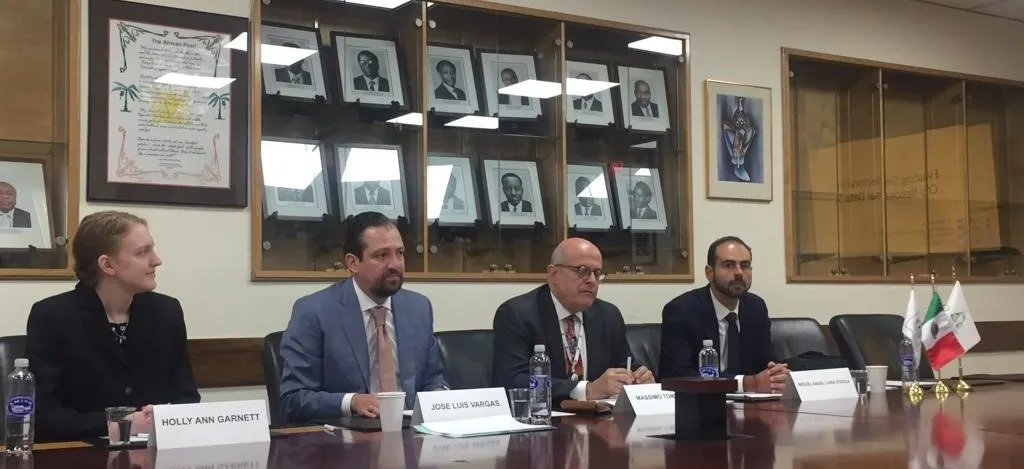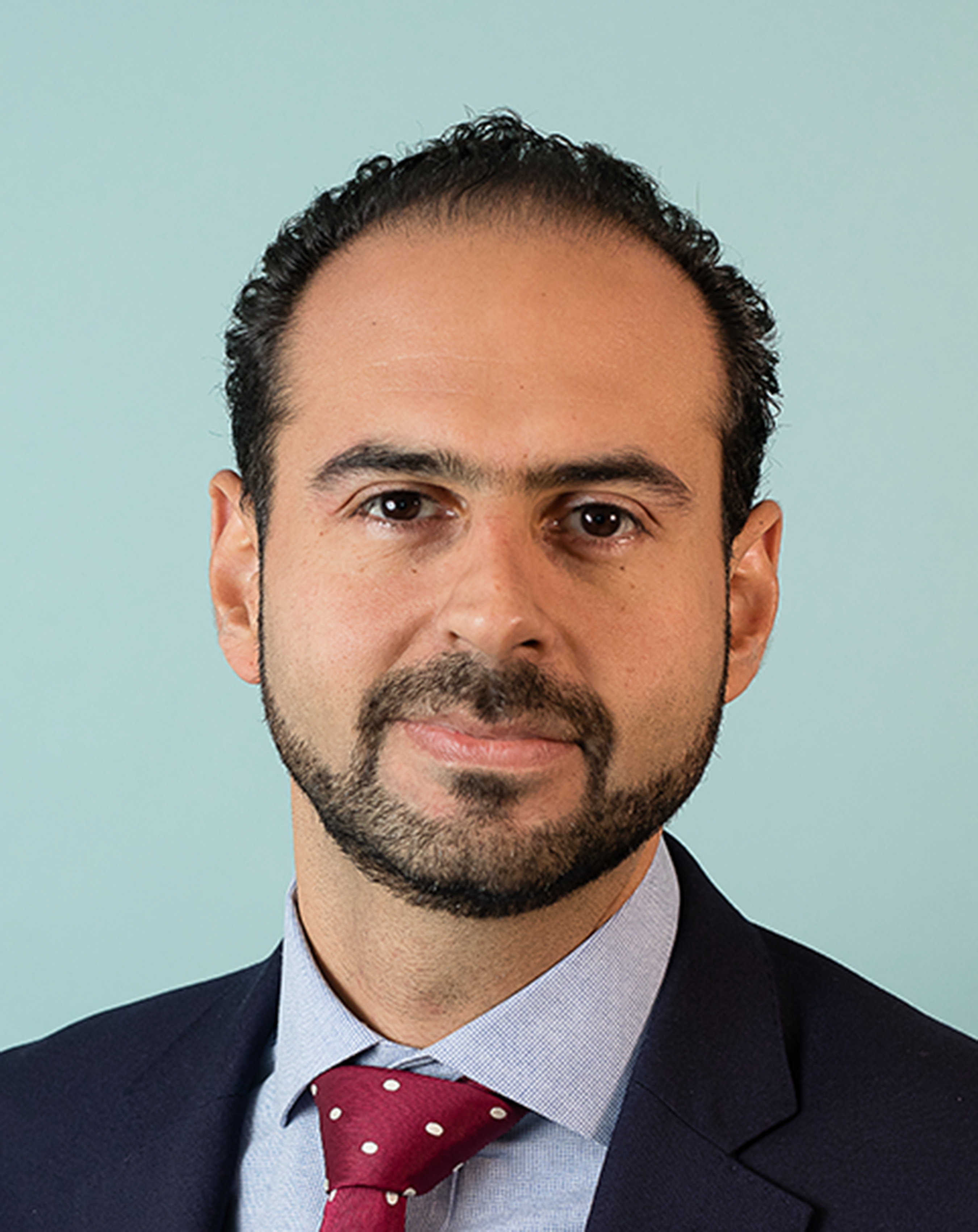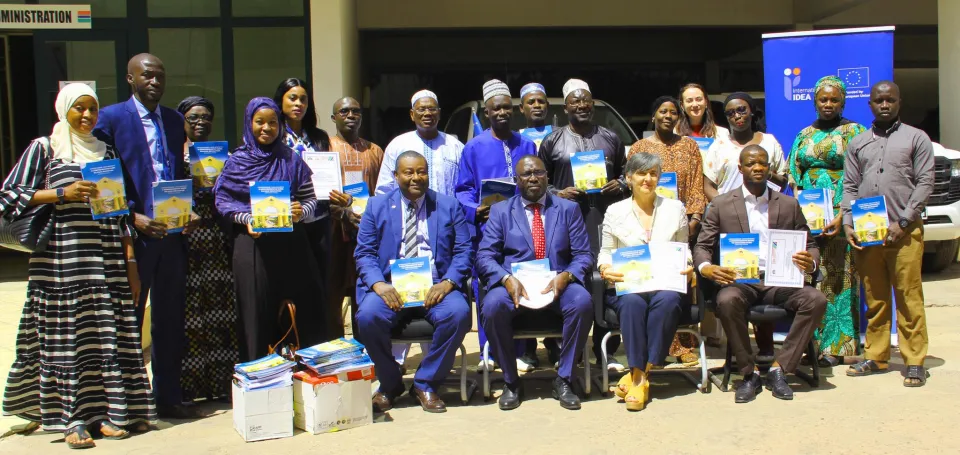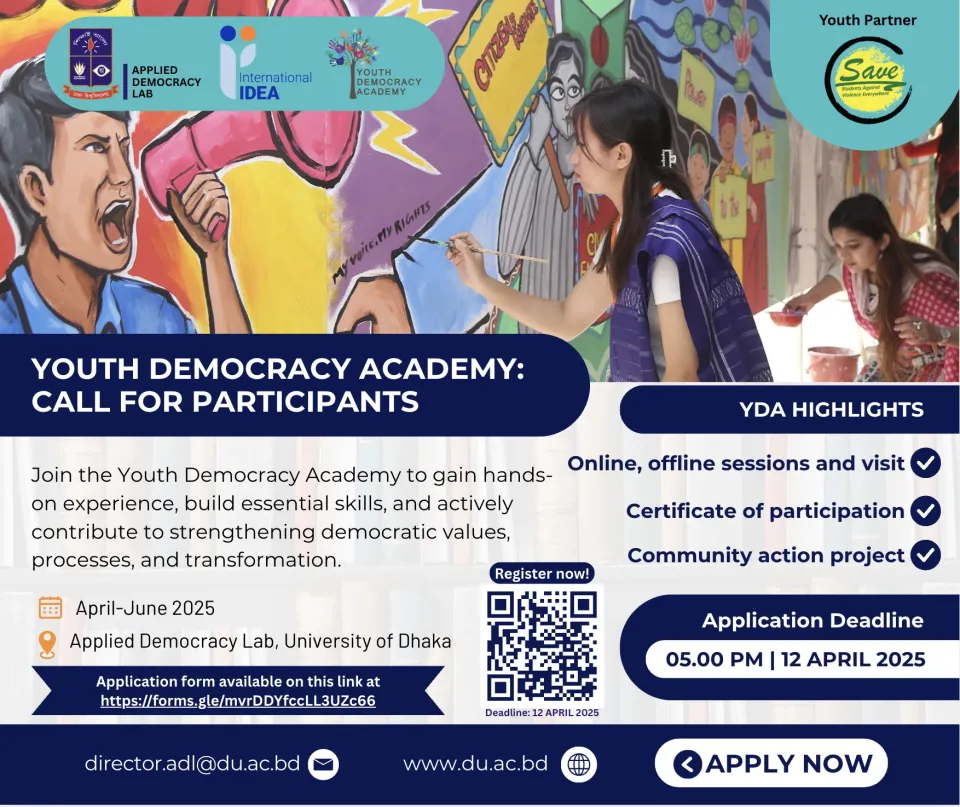Access to justice for all: effective, accountable and inclusive electoral institutions

Within the framework of the United Nations High Level Political Forum on Sustainable Development (HLPF 2019) and the evaluation of the commitments towards achieving SDG16, International IDEA –with the support of the Electoral Tribunal of Mexico– organized the side event “Access to justice for all: effective, accountable and inclusive electoral institutions” on 15 July 2019 at the Uganda House in New York City. The panel aimed to present work in the area of electoral justice towards building effective, accountable and inclusive institutions that guarantee elections are lawful and rights are respected.
Este artículo está disponible en español.
NEW YORK — Massimo Tommasoli, the Permanent Observer for International IDEA to the UN, moderated the discussion and emphasized the role played by justice and indicators on achieving SDG16. Holly Ann Garnett, Assistant Professor of Political Science at the Royal Military College of Canada, provided background on how we evaluate elections and electoral integrity and shared three main keys about electoral integrity. One, elections can be judged based on international standards and norms; two, elections can fail at any stage of the electoral cycle; and three, elections can be vulnerable in established and new democracies alike.
Miguel Angel Lara Otaola, Head of Programme for Mexico and Central America, continued the conversation with a presentation of a first proposal for building a Global Index on Electoral Justice. He emphasized an existing gap between existing indices that assess democracy and elections; while the quality of elections and the integrity of electoral processes are well researched –and measured–, electoral justice is not. The proposal seeks to address this gap and therein lies its novelty and originality. Nevertheless, there’s an important challenge to be faced: there’s a wide variety of electoral justice systems around the world and such index should be universally relevant. Dr. Lara Otaola explained that the goal is to create a tool that will be able to measure and compare different legal traditions, Electoral Dispute Resolution (EDR) systems, mechanisms, liabilities, and offenses.
Later on, Justice José Luis Vargas Valdez from the TEPJF started his intervention by recognizing the value and significance of the cooperation between his institution and International IDEA. He presented the jurisdictional work of the Tribunal for the promotion and strengthening of access to justice for all and for specific groups and populations, especially women, people with disabilities, young voters and indigenous communities. Guaranteeing access to justice is key to achieving SDG16. In that regard, Mexico’s Electoral Tribunal has developed cutting edge resolutions that advance political and electoral rights. One key example of this is the decision that guarantees that political parties meet the quota of running a minimum number of indigenous candidates to Congress, in order to ensure that this is the case in thirteen electoral districts of the country. In addition to this, Justice Vargas emphasized the important role of transparency, measurements and analysis in institutional strengthening.
The panel discussion was followed by questions and comments from the floor. During the session, issues like the challenges faced by democracy by information technologies and the major challenges of guaranteeing access to democracy for vulnerable groups, like indigenous communities, were brought up to the debate. As for the first one, Justice Vargas Valdez mentioned that ICTs are not just a local problem; this is an issue that goes beyond State borders and sovereignty, technology has advanced more than legal frameworks and states need to find common and global solutions. For the latter, Justice assured that balancing between the community’s traditions and national laws have been an everyday challenge, but universal human rights have always prevailed in the Tribunal’s decisions.
Professor Garnett mentioned that there’s no easy way to stop disinformation and misinformation, but work can be done on how citizens identify, understand and process information. As for Dr. Tommasoli, he highlighted the importance of endeavors that study and address the issue of ICTs and Democracy.
Attended by colleagues form different Organizations, Member State missions, and academia, the side event was full of enriching contributions to the debate of the undeniable relationship between Electoral Justice and SDG16. Democracy is not guaranteed without the rule of law and access to justice. Without these two conditions, free and fair elections are not attainable, and citizen rights are not protected. Electoral justice systems play a crucial role in this; they guarantee that all components of an election are held in compliance with the law, that citizens are able to exercise their political rights and, ultimately, that elections are viewed as legitimate.
Therefore, an independent, effective and efficient electoral justice system is fundamental for securing these objectives, and finally for achieving peaceful and inclusive societies.




